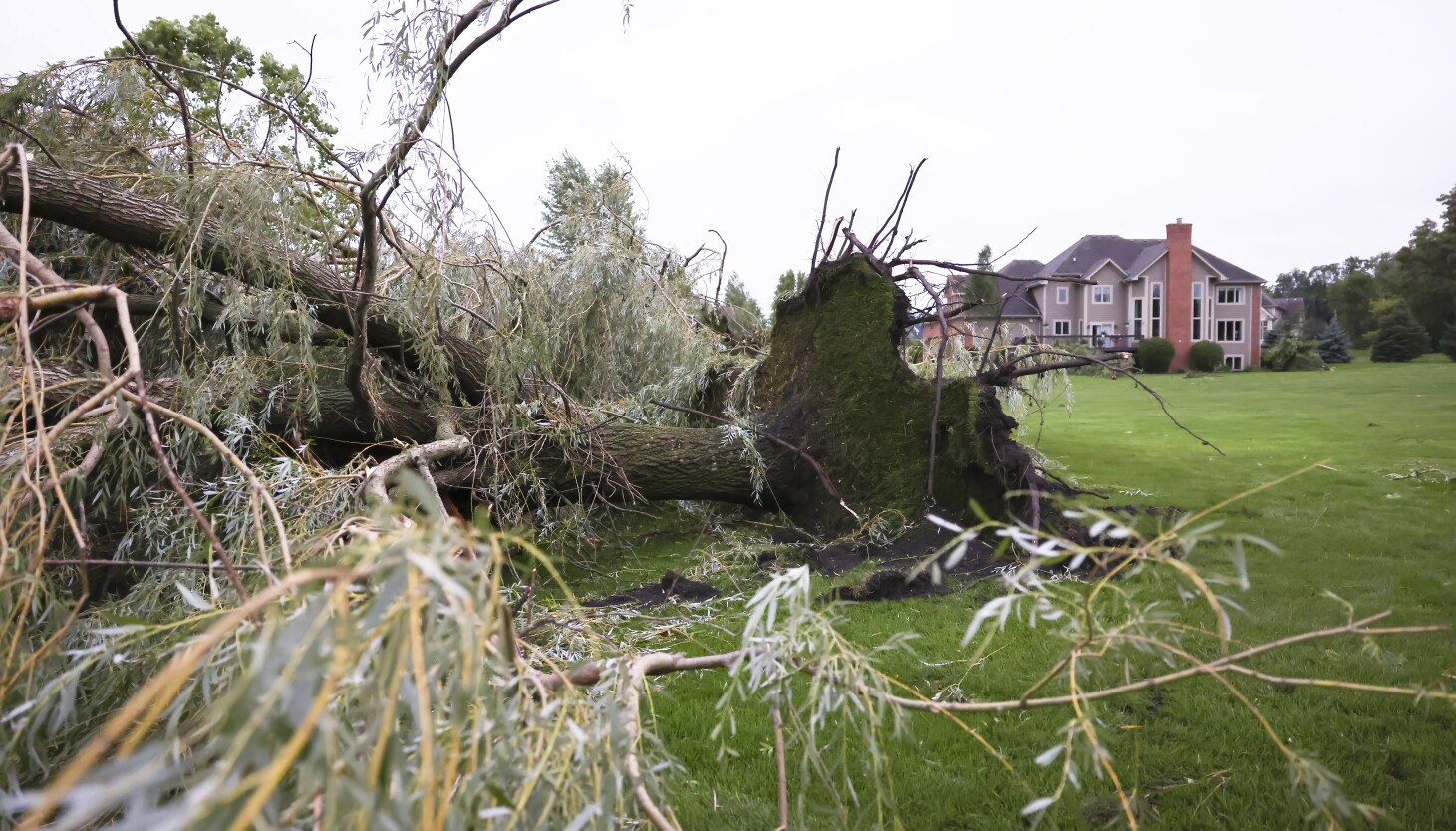Whirlwinds of Controversy: When Science Confronts Political Storms
Science
2025-03-14 11:00:00Content

As climate change intensifies, extreme weather events are wreaking unprecedented havoc across the nation. Paradoxically, at a time when scientific understanding and preparedness are most critical, the current administration is undermining the very agencies tasked with protecting and informing the public.
The National Weather Service, a cornerstone of meteorological research and public safety, finds itself under attack despite mounting evidence of increasingly destructive climate patterns. Powerful hurricanes, devastating wildfires, unpredictable flooding, and record-breaking temperature extremes are becoming the new normal—yet political interference threatens to silence the scientific voices that could help us best prepare and respond.
These attacks not only compromise our ability to predict and mitigate weather-related disasters but also demonstrate a dangerous disregard for scientific expertise. As communities nationwide face growing environmental challenges, we need robust, independent scientific agencies more than ever. The stakes are too high to allow political agendas to compromise public safety and our understanding of climate dynamics.
The time for political posturing is over. We must support our scientific institutions, listen to expert research, and take decisive action to address the escalating climate crisis before it's too late.
Climate Crisis Unveiled: Presidential Attacks Threaten Scientific Integrity in Weather Forecasting
In an era of unprecedented environmental challenges, the delicate balance between political leadership and scientific understanding has become increasingly fraught with tension. The ongoing conflict between governmental powers and scientific institutions reveals a critical battleground where climate research, public safety, and political agendas collide with potentially catastrophic consequences.Unraveling the Dangerous Intersection of Politics and Meteorological Science
The Escalating Climate Emergency
Extreme weather events have transformed from rare occurrences to terrifyingly regular phenomena, painting a stark portrait of our changing global ecosystem. Climate scientists have long warned about the intensifying patterns of destructive meteorological events, with each passing year bringing more frequent and more devastating natural disasters. Tornadoes, hurricanes, and unprecedented storm systems are no longer anomalies but increasingly become the new normal, challenging our understanding of environmental stability. The intricate web of global warming's impact extends far beyond simple temperature increases. Atmospheric dynamics are becoming increasingly unpredictable, creating complex cascading effects that challenge even the most sophisticated predictive models. Researchers have documented significant shifts in wind patterns, precipitation cycles, and extreme weather frequency, underscoring the urgent need for comprehensive climate research.Political Interference in Scientific Institutions
The National Weather Service stands at a critical intersection of scientific research and public safety, providing essential information that can mean the difference between life and death during extreme weather events. However, recent political maneuvers threaten to undermine this crucial institution's independence and effectiveness. Presidential attacks on scientific agencies represent a dangerous precedent that could potentially compromise the integrity of critical research and public warning systems. By attempting to politicize scientific institutions, leadership risks creating dangerous information gaps that could leave communities vulnerable to increasingly unpredictable environmental threats.The Human Cost of Scientific Suppression
When political interests interfere with scientific research, the most immediate and devastating consequences are borne by ordinary citizens. Communities rely on accurate, timely weather predictions to prepare for potential disasters, evacuate dangerous areas, and protect vulnerable populations. The suppression of scientific research doesn't just impact data collection—it directly threatens human lives. Each moment of delayed or compromised information represents potential risk to entire populations, particularly those in regions most susceptible to extreme weather events.Technological Innovations in Weather Prediction
Despite political challenges, meteorological science continues to advance through groundbreaking technological innovations. Satellite imaging, artificial intelligence, and sophisticated computer modeling are revolutionizing our ability to understand and predict complex weather systems. These technological breakthroughs offer hope, demonstrating that scientific progress can transcend political limitations. Advanced predictive models now incorporate increasingly complex data sets, providing more nuanced and accurate forecasts that can potentially save countless lives.Global Implications and Collaborative Solutions
The challenges facing meteorological research extend far beyond national boundaries. International scientific collaboration has become more critical than ever in understanding and mitigating the complex challenges posed by global climate change. Researchers worldwide are developing innovative approaches to climate modeling, sharing data, and creating comprehensive strategies to address the multifaceted challenges of environmental transformation. These collaborative efforts represent our most promising path forward in confronting the existential threat of climate change.RELATED NEWS
Science

Science Sanctuary on the Move: Weis Earth Science Museum Prepares for Appleton Relocation
2025-04-22 21:27:32
Science

Breaking Barriers: Why Your Passion Could Be Science's Next Big Discovery
2025-04-30 13:27:05






